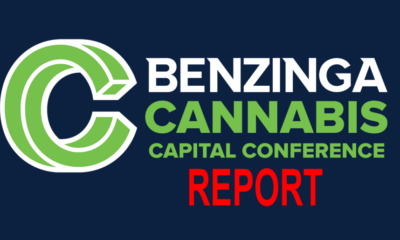We’ve all played the board game, Monopoly. The object of the game is to collect all the assets available at the expense of your opponents. I remember playing it as a kid with a lot of fury and determination. My father was big on playing board games and Monopoly was a favorite.
We’d duel it out like greedy robber-baron capitalists. My dad would almost always win. Then I’d throw an angry fit because no kid likes to lose. My father would laugh out loud from the bottom of his belly and clap his hands. Then he’d comfort me by saying, “This is good for you.”
Then we’d usually pivot to a different game like cards, where the beatdown would happen all over again. My father was not the kind of parent to let his kids win. We had to earn it. This is how a lot of kids are raised. Games and competition are built into the paradigm of suburban America. Even in leisure time, games like Monopoly condition adults and children to win at the expense of their opponents.
There’s a catch, though. In Monopoly, every player starts out with the same amount of capital. In theory, this makes the game a level playing field. It’s the skill of the player and the luck of the dice that determines the winner.
Board Games Aren’t Reality
Capitalism doesn’t work this way. Children are not given a fixed amount of money at birth—the same amount as all other children—and then allowed to win or lose according to their skills and their luck in life. In fact, most Americans live paycheck-to-paycheck and have very little savings. They lack capital and therefore cannot own their own labor. They have to work for someone else.
One way that working-class people have hacked this set of circumstances and the unlevel playing field they find themselves on is by growing, transporting and trading in cannabis. More than 100 years of prohibition made this possible because the only constraint was the law (a familiar foe). Mainstream America, venture capitalists and Wall Street weren’t in that market because weed wasn’t legal and they didn’t need to risk prison to make ends meet. They were busy leveraging their capital in other sectors.
Even without capital, this underground industry was able to grow into a behemoth because people “fronted” weed to other dealers and got paid later. Working people have always used underground credit lines to make ends meet until the paycheck arrived or a load of weed was sold. It’s a creative way to tap into capital without having any.
The modern-day legal cannabis industry is like a game of Monopoly but without the level playing field. It’s become clear that big company CEOs and their investors desire a monopoly in the weed game. The phrases I hear a lot in boardrooms are: “global domination,” “winning the game,” and “owning the market.”
The fury with which I played Monopoly is the same energy I see coming out of these big companies. It’s not exactly a criticism because they’re just following their training and fiduciary duties. This is what people in business do. It’s how they’re taught. It’s who they are.
Advertisement
Numbers Don’t Lie
The numbers in the cannabis industry support these conclusions. The amount of licensed, legal cannabis ownership by women, people of color, LGBTQIA+ folks and working people is lower than in other industries. Generally, capital is scarce for these communities and the barriers to entry are high. The diversity in board rooms and C-suites and among directors and managers in cannabis is well below the average of all mainstream businesses in the U.S., according to a 2022 MJBizDaily report. The post-pandemic reality of the cannabis industry has seen the diversity get worse, not better.
Monopolies are bad for economies. Just as economies that are over-controlled by government entities tend to suck, so do market segments that are owned by one corporate entity or just a handful. Competition disappears; complacency and corruption quickly replace it. Innovation stops because the people in power don’t need it anymore—they have a monopoly and have no incentive to change it. The current data in the cannabis industry suggests that a trend towards monopolies and oligarchies is well underway.
For the last several years, the Parabola Center, founded by Shaleen Title, has been working to stop the monopolization of cannabis. Title has a background in law and policy. She and her team at the Parabola Center work on public policy solutions to level the playing field in the cannabis industry. Her ideas are rooted in anti-trust law, outlining the steps policymakers should take to create a more diverse and equitable industry.
Limiting the amount of the industry that any one entity can own is the cornerstone of Title’s policy recommendations. The mechanisms to do that include banning vertical integration of the supply chain, dividing the market into several independently owned tiers, banning technology companies from controlling the market, limiting mergers and acquisitions, disqualifying historically bad actors (like Big Tobacco) from entering the market, and yanking licenses from entities that lobby against home grow or social equity.
Radical or Responsible?
Some of these policies may be considered radical by people with more corporate backgrounds. There may be accusations of “socialism” or “government interference in the free market” from large companies that do have vertically integrated operations or who do lobby against home growing. There will certainly be objections to limiting M&A, and groups like Big Tobacco and Big Alcohol are not going to sit back and allow themselves to be shut out of a new industry. They’re already putting up a hell of a fight in the halls of power.
It appears like we’re on a collision course that threatens to demolish everyone’s piece on the board. Industry players are getting out the Monopoly board game and rolling some dice. The Parabola Center and an entire community that stands with them will be on one side of the board, while the other side is populated by people with a lot of capital and business acumen. Elected
officials will be in the middle trying to make sense of something they themselves prohibited not too long ago.
At first blush, the game doesn’t feel like it’ll be close. Capitalism will crush the reformers, just as Goliath tried to crush David. But we know how that turned out.
The policy battle for the soul of the cannabis industry is on. As large companies continue to be unprofitable, as the legacy market gets squeezed and enforcement it ratchets up, mutually assured destruction (MAD) seems to be the only outcome.
It can be depressing.
Advertisement
Bridges of Stone
I’ve spoken often about building bridges between “stoners and suits.” Despite my best efforts, it’s not yet happening. But the Parabola Center and many others stand ready to negotiate and find a middle ground. I know there are good people with good intentions running these large companies. I’ve observed a genuine motivation to be different. But I also know they’re trained to win at all costs—and so are their investors (who really drive the show).
The need to come together to avoid a war of MADness is pretty clear to most policy makers. The numbers don’t lie. The problem is policy makers don’t know how to do it. They still have cannabis prohibition in their muscle memory. The work of Title and her colleagues offers policy makers and leaders a toolkit for leveling the playing field and creating a more equitable market. Rather than a rigid policy framework for all states or municipalities, the Parabola Center’s recommendations have flexibility is baked in.
If an ethic of sharing the market with impacted actors in the industry can take hold, my hope rises for stoners and suits to co-exist and do well. It won’t be easy. People used to winning at Monopoly must learn to play a different game. Legacy folks must learn how to win with their own skills and training in a more competitive market.
Monopoly is a lot of fun to play with your dad or your kids. What we’re doing in the cannabis industry is not a game, though. It has real impacts on real people. We must look to roadmaps like the Parabola Center’s to chart a path to something better than endless battles between monopolies, oligarchies and underground markets.

 Cover Features11 months ago
Cover Features11 months ago
 Cover Features11 months ago
Cover Features11 months ago
 Legal9 months ago
Legal9 months ago
 Branding10 months ago
Branding10 months ago
 Products9 months ago
Products9 months ago
 Business12 months ago
Business12 months ago
 Branding12 months ago
Branding12 months ago
 Podcasts11 months ago
Podcasts11 months ago














